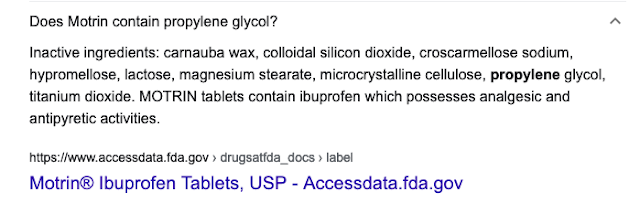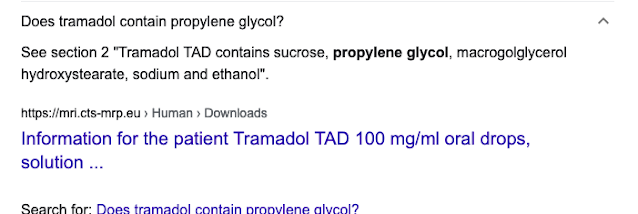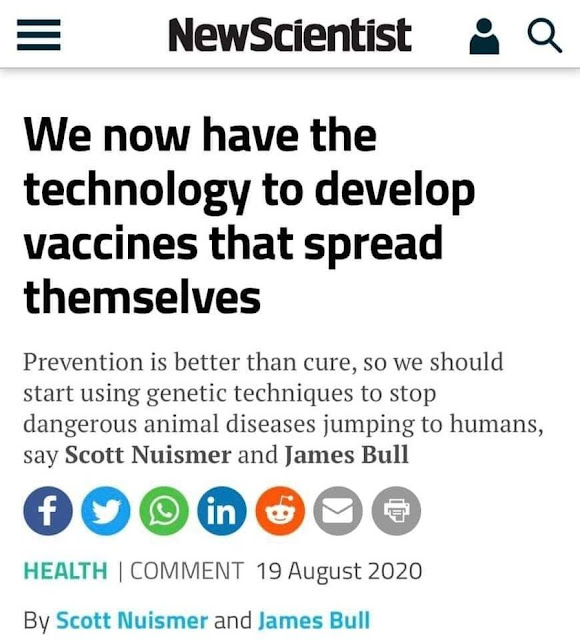WTF is there antifreeze in my bread?
I am certain this is NOT organic but GMO frankenwheat
I have researched the effects of GMO wheat since they started sneaking it in the food supply back in 1994.
Every time I eat this frankenfood I have sinus infections, congestion, headaches, sore throat, stomach bloating and pain behind my eyes.
After eating 2 pieces of this bread I immediately felt these effects.
Someone needs to run tests on this product...
But more importantly, I have also noticed that this bread will not freeze hard like normal bread. Indicating a possible presence of propylene glycol. [antifreeze]
This "ingredient" is not allowed in anything certified "Organic".
This is possibly why it is so "gummy" as most of the Amazon reviewers mention.
It has a very weird consistency.
PG is used in bread and other foods as an emulsifier, texturizer and dough conditioner.
https://bakerpedia.com/propylene-glycol-baked-goods/
Here are 3 reasons you might consider removing propylene glycol from your baked goods:
1. Clean Label Products – According to the Center for Science in the public interest, propylene glycol is placed in Tier 4. The clean label program has 4 tiers with tier 1 being ingredients that have major health concerns due to the excessive amounts consumed and number of people affected.1 Tier 4 items are Poorly Tested Substances and Other Safety Issues, including Allergic or Hypersensitivity Reactions.1 Examples in tier 4 are artificial colorings, artificial preservatives, flavorings/flavor enhancers, natural high-potency sweetener, preservatives, and thickeners.1
2. Certified Organic or Made With Organic Products – According to the National Organic Program under the USDA, the current annotation for flavors, synthetics solvents such as propylene glycol and hexane are prohibited, as well as synthetic carriers and artificial preservatives.4
3. Consumer Preference – Both Propylene glycol and ethylene glycol are used as deicers in antifreeze. Eating or drinking very large amounts of ethylene glycol can result in death. This confusion has led propylene glycol to become a consumer NO-NO ingredient much like high fructose corn syrup or carrageenan. A recent recall of Fireball Whiskey shipped to Europe was due to levels of propylene glycol in the product. The European Union’s stricter guidelines on recommended levels of propylene glycol forced state-owned retailers to yank the drink from shelves in Sweden and Finland.5
Interesting how this lady writing the article worked for Dave's Killer bread.
I noticed this effect with their bread as well.
I wondered if my freezer was bad, but everything else was rock solid.
Ezekiel 4:9 organic bread is always rock hard.
I was immediately suspicious about that "Killer Bread". But
I'm sure you can trust Dave, after his multiple stints in prison I'm sure he's a
changed man. Also noteworthy is the fact that many of the employees are
ex-cons. Then again, the same could be said for Pfizer...
Dave has since sold the company for 275 million.
https://www.youtube.com/watch?v=IZgfg-vSdHA
Does bread contain propylene glycol?
Propylene glycol is commonly found in many packaged foods, such as drink mixes, dressings, dried soups, cake mix, soft drinks, popcorn, food coloring, fast foods, bread and dairy products ( 6 ). ... Additionally, it is used in industrial products like paint, antifreeze, artificial smoke and e-cigarettes (2, 6
https://www.healthline.com/nutrition/propylene-glycol#TOC_TITLE_HDR_2
Upon further review I find Propylene Glycol is being added to many of
the medications, soft drinks, Fireball Whiskey and scores of other
examples. So when you add up all this exposure during the course of your
day accumulation could be substantial.
This appears to be yet another mechanism...
This really chaps my ass. Come to find out " irritation of the rectum", is an adverse reaction of consuming antifreeze...
COMMON side effects
• irritation of the rectum.
• a sleep disorder.
• excessive thirst.
• nausea.
• vomiting.
• stomach cramps.
• abdominal bloating.
• a feeling of general discomfort called malaise.
And let's not forget that DEATH is an adverse reaction.
Meanwhile... Propylene glycol is NOT listed as an ingredient on Oroweat Organic bread... And yet "something" is clearly preventing this bread from freezing. Failing such a simple test in an indication.
https://www.amazon.com/gp/product/B0775LJJG1?almBrandId=QW1hem9uIEZyZXNo&fpw=alm
Ingredients
WHOLE WHEAT FLOUR*, WATER, CANE SUGAR*, CRACKED WHEAT*, WHEAT GLUTEN*, FLAXSEED*, YEAST, BLACK AND WHITE SESAME SEEDS*, SUNFLOWER SEEDS*, SOYBEAN OIL*, SEA SALT, PUMPKIN SEEDS*, GRAIN VINEGAR*, RYE FLOUR*, FLAXMEAL*, MILLET*, NATURAL FLAVORS, BLACK CHIA SEEDS*, KAMUT (KHORASAN WHEAT)*, KANIWA SEEDS*, TEFF*, BROWN RICE*, BUCKWHEAT FLOUR*, SPELT FLOUR*, CULTURED WHEAT STARCH*, POPPY SEEDS*, AMARANTH*, BARLEY*, BLUE CORNMEAL*, OATS*, TRITICALE*, SORGHUM FLOUR*, QUINOA*, CITRIC ACID.
The Food and Drug Administration (FDA) has classified propylene glycol
as “generally recognized as safe,” which means that it is acceptable for
use in flavorings, drugs, and cosmetics, and as a direct food additive.
GRAS "generally recognized as safe” is a rather deceptive legalese term.
It
does not mean it has been proven safe using the magic of "science". It
means there's not enough obvious evidence in the public domain to refute
the claim.
Foods that Contain Propylene Glycol
- Seasoning blends
- Dried soups
- Salad dressings
- Baking mixes for foods like cakes, muffins, cinnamon buns, biscuits, cupcakes, and pancakes
- Powdered drink mixes
- Flavored teas
- Soft drinks
- Alcoholic beverages
- Food coloring
- Flavoring extracts
- Highly processed snacks
- Fast foods
- Flavored popcorn
- Cake frosting
- Ice cream flavors
- Mass-distributed baked desserts
- Marshmallows
- Dried coconut shreds
- Sauces
- Sour cream
- Potato salad
- Macaroni
- Cheese
https://sciencing.com/polyethylene-glycol-vs-ethylene-glycol-5977662.html
Ethylene Glycol Characteristics
Ethylene glycol is a toxic organic compound. At room temperature, it appears in a liquid state. It is odorless and colorless and has a sweet taste. Even small amounts of this compound are harmful if ingested and may lead to shock or even death. Consuming just 4 fluid ounces is enough to cause fatality in a large adult.
Ethylene Glycol Uses
Ethylene glycol appears in many common household items, such as laundry detergent, dishwasher detergent, cosmetics and paint. Ethylene glycol also serves as an antifreeze and a hydraulic brake fluid additive for automobiles. In addition, it sometimes functions as a deicing agent for runways and planes. The use of this compound as a deicer and antifreeze agent leads to concerns of environmental contamination due to improper disposal and incidental runoff.
Polyethylene glycol and ethylene glycol are two very different substances with very similar names, which may cause confusion. One compound is helpful for medical applications while the other compound is fatal if ingested.
If a dog or most any animal drinks a bit of antifreeze from a leaking car radiator, it will die...
But they tell us it's safe in small doses... Yep.
So maybe not let your dog eat the same food if you like to eat antifreeze laden products...
Here's a hint, if rats and dogs will die from eating human food, do you really believe it is "safe"?
When you research what's really in our food supply and constantly find sources of poison you may reach a point where you realize it is not accidental...
Even more so when you realize the corporate overlords support eugenicidal population control measures... To save us all from the evil Global Warming Monster.
But the shiny people on TV will tell you that's a "crazy conspiracy theory".
Yep.
Nothing to worry about here. I'm sure the SNOPES has already "Debunked" it.
Turn back on the TV and forget about all this.
Gobble up your antifreeze minions.
At least you won't freeze to death in Joe's "Dark Winter".
And then this hole gets deeper and deeper.
Have you had your daily dose of antifreeze?
Propylene glycol is in many "medications".





































Comments
Post a Comment